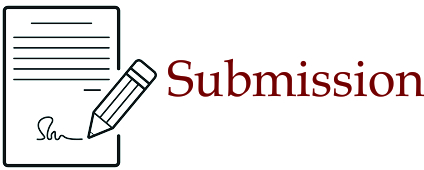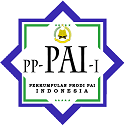- Focus and Scope
- Section Policies
- Peer Review Process
- Open Access Policy
- Archiving
- Ethics of Using AI To Write
Focus and Scope
Articles to be received and published in J-PAI: Jurnal Pendidikan Agama Islam are included in the scope of:
- Education Science.
- The Islamic Education Science.
- Educational Psychology.
- Learning Psychology.
- Educational Philosophy.
- Islamic Educational Philosophy.
- Lesson Plan.
- Lesson Design.
- Lesson Media
- Development of Resources and Learning Media.
- Learning Theory of Islamic Education.
- Learning Strategies of Islamic Education.
- Islamic Education Curriculum Development.
- Objectives and Evaluations of Educational Curriculum.
- Tafsir Tarbawi.
- Hadist Tarbawi.
Section Policies
Articles
Editorial Board dan Daftar Isi
Peer Review Process
All manuscripts submitted to this journal are subject to a single-blind peer review process. Each article will be reviewed by at least two reviewers in one or more rounds, depending on the nature of the revisions required. In each round, reviewers may differ according to the editorial decision and expertise needed.
The review process aims to ensure the quality, validity, and originality of the submitted manuscripts. The editorial team will make the final decision based on the reviewers’ comments and recommendations.
All submissions will be checked for plagiarism using Turnitin before being sent to reviewers.
Open Access Policy
This journal provides immediate open access to its content on the principle that making research freely available to the public supports a greater global exchange of knowledge.
This journal is open access journal which means that all content is freely available without charge to users or / institution. Users are allowed to read, download, copy, distribute, print, search, or link to full text articles in this journal without asking prior permission from the publisher or author. This is in accordance with Budapest Open Access Initiative

All published articles are licensed under the Creative Commons Attribution-ShareAlike 4.0 International License (CC BY-SA 4.0).
Archiving
Digital Archiving Policy
J-PAI: Jurnal Pendidikan Agama Islam has electronic backup and preservation of access to the content of its journals via PKP Preservation Network (PKP PN). This can be seen at Publisher Manifest.
PKP has developed the PKP Preservation Network (PKP PN) to digitally preserve OJS journals. The LOCKSS program offers decentralized and distributed preservation, seamless perpetual access, and preservation of the authentic original version of the content. The PKP PN ensures that journals not part of any other digital preservation service (such as CLOCKSS or Portico) can be preserved for long-term access. For additional details about the PKP PN, Please see the high-level overview (an early discussion document).
Ethics of Using AI To Write
J-PAI: Jurnal Pendidikan Agama Islam is committed to promoting the ethical use of artificial intelligence (AI) in academic writing by upholding the principles of transparency, accountability, and a balanced integration of human and technological contributions.
Authors are required to disclose any use of AI technologies in the research and writing process, including the specific tools, software, or algorithms applied, as well as the role AI played in supporting the analysis, argument development, or formulation of research findings.
All AI-assisted content must adhere to standards of accuracy, transparency, and proper attribution. Authors are fully responsible for verifying the correctness and reliability of AI-generated output, ensuring that its use does not compromise academic integrity or introduce risks such as technological bias, misinformation, or data fabrication.
To maintain the rigor of human scholarship, J-PAI sets a maximum threshold of 15% AI-generated content, as verified through Turnitin/iThenticate AI detection services. This limitation is intended to preserve the primary role of human intellect and critical thinking in scholarly research and writing.
These guidelines aim to foster the responsible, fair, and constructive use of AI in academic work, while preserving the values of originality, ethical integrity, and Islamic scholarly excellence.


















